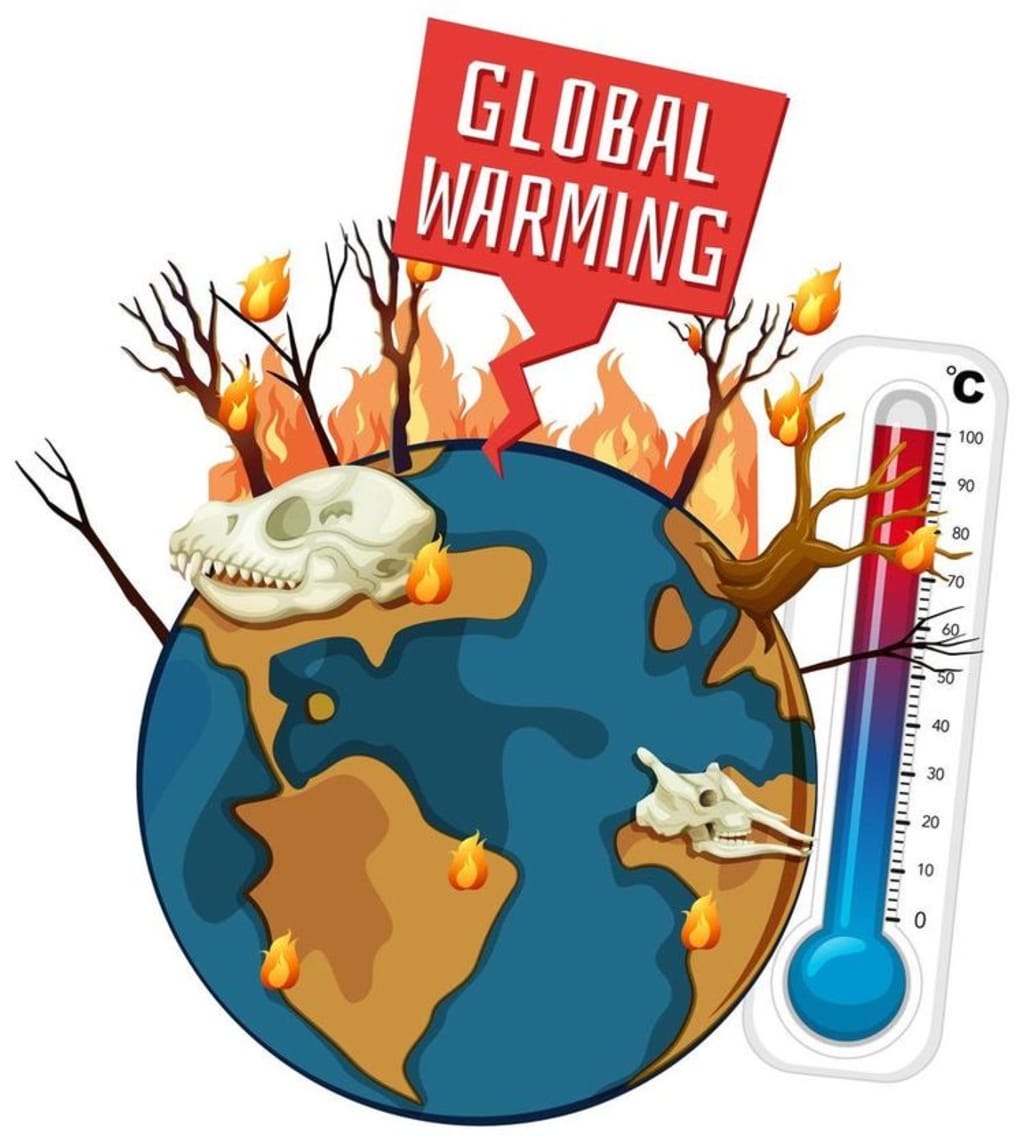
Global warming, also known as climate change, has emerged as one of the most pressing challenges facing humanity. It refers to the long-term increase in Earth's average surface temperature due to human activities, primarily the release of greenhouse gases into the atmosphere. The consequences of global warming are far-reaching, affecting ecosystems, weather patterns, and the overall stability of our planet. Urgent action is necessary to mitigate and adapt to the impacts of this crisis.
The Science of Global Warming
The scientific consensus on global warming is overwhelming. Extensive research conducted by climate scientists worldwide indicates that the primary driver of this phenomenon is human activity. The burning of fossil fuels such as coal, oil, and gas releases carbon dioxide (CO2) and other greenhouse gases, trapping heat in the atmosphere. Deforestation, industrial processes, and agricultural practices also contribute to greenhouse gas emissions.
Consequences of Global Warming
Rising temperatures: Global warming is causing a gradual increase in Earth's average temperature. This rise has resulted in heatwaves, melting glaciers and polar ice caps, and shifts in ecosystems. Warmer temperatures also lead to more frequent and intense extreme weather events such as hurricanes, droughts, and floods.
Sea level rise: As global temperatures increase, the polar ice caps and glaciers melt, leading to a rise in sea levels. This threatens coastal communities and low-lying islands, increasing the risk of flooding, erosion, and saltwater intrusion into freshwater sources.
Ecosystem disruptions: Global warming disrupts ecosystems and threatens biodiversity. Many species struggle to adapt to rapid changes in their habitats, leading to habitat loss, shifts in migration patterns, and increased risk of extinction. Coral reefs, for example, suffer from bleaching events due to higher water temperatures.
Impacts on human health: Climate change affects human health through various pathways. Heat-related illnesses, respiratory problems from worsening air pollution, and the spread of diseases carried by insects and rodents are among the health risks associated with global warming. Vulnerable populations, including the elderly and those in low-income countries, are particularly at risk.
Addressing Global Warming
Transition to renewable energy: Phasing out fossil fuels and embracing renewable energy sources such as solar, wind, and hydropower is crucial to reducing greenhouse gas emissions. Investing in clean energy technologies and improving energy efficiency can help mitigate climate change while creating new job opportunities.
Sustainable transportation: Promoting electric vehicles, improving public transportation systems, and encouraging walking and cycling can significantly reduce emissions from the transportation sector, which is a major contributor to greenhouse gas emissions.
Reforestation and forest conservation: Protecting existing forests and undertaking large-scale reforestation efforts can help absorb CO2 from the atmosphere, acting as natural carbon sinks. Forests play a vital role in maintaining biodiversity, preserving water resources, and mitigating climate change.
International cooperation: Global warming is a global problem that requires international cooperation. Countries must collaborate to set and achieve ambitious emissions reduction targets, share technological advancements, and provide financial assistance to developing nations in their efforts to combat climate change.
Conclusion
Global warming poses an unprecedented threat to the future of our planet and the well-being of current and future generations. The time for action is now. By implementing sustainable practices, transitioning to clean energy, and fostering international collaboration, we can mitigate the effects of global warming and build a more sustainable and resilient future. It is our responsibility to act swiftly and decisively to protect our planet for ourselves and future generations. Global warming is a critical issue that demands immediate attention and action. The overwhelming scientific evidence leaves no room for doubt: human activities are driving the rise in Earth's temperatures and triggering disastrous consequences. To combat global warming, we must transition to renewable energy sources, promote sustainable transportation, protect and restore ecosystems, and foster international cooperation. The stakes are high, as the impacts of global warming are already being felt across the globe. By taking decisive steps to reduce greenhouse gas emissions and adapt to a changing climate, we can safeguard our planet, protect vulnerable ecosystems, and secure a sustainable future for generations to come.





Comments
There are no comments for this story
Be the first to respond and start the conversation.